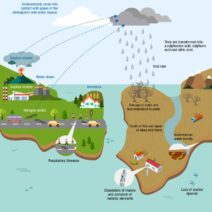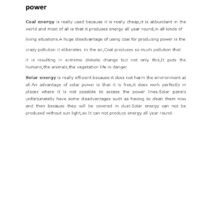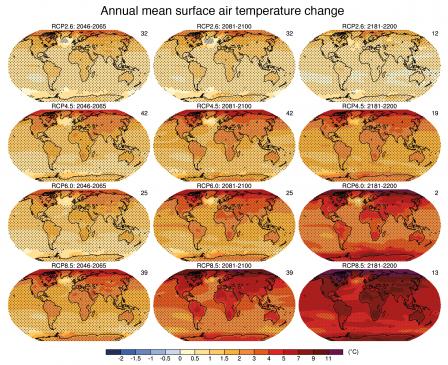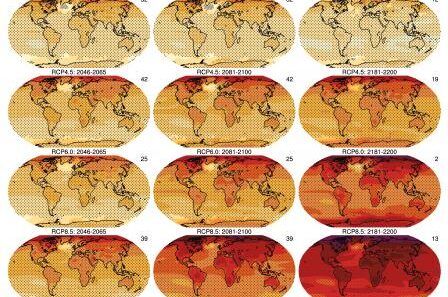The relentless progression of climate change presents a formidable tapestry of consequences that are intricately entwined with the very fabric of our planet. As greenhouse gas emissions continue to escalate unabated, the repercussions are far-reaching and complex. A future punctuated by climate change will not merely serve as an environmental crisis; it promises to engender economic, social, and geopolitical upheaval. This exploration delves into the multifaceted dimensions of this impending landscape, elucidating the profound transformations that await humanity if the current trajectory remains unchanged.
To begin with, the most palpable aspect of climate change is the inexorable rise in global temperatures. Projections suggest that if emissions continue at their current rate, we may witness alarming increases in average global temperatures, potentially surpassing critical thresholds of 2°C above pre-industrial levels by mid-century. Such an elevation could catalyze catastrophic consequences, including the exacerbation of extreme weather events. Hurricanes may grow in intensity, droughts could become more severe, and flooding could engulf coastal cities worldwide. The dichotomy of heatwaves juxtaposed with torrential rains represents a stark reality that is fast approaching.
Moreover, as temperatures soar, the repercussions for biodiversity are equally dire. The delicate equilibrium of ecosystems, which has prevailed for millennia, is poised to fracture under the weight of climate change. Species that are ill-equipped to adapt to rapid environmental alterations may face extinction. This phenomenon disrupts the intricate web of life, resulting in the loss of plant and animal species that are crucial for ecosystem services, such as pollination and nutrient cycling. Consequently, the reduction in biodiversity threatens agricultural systems, risking food security for millions. The existential threat posed to the natural world compels a reevaluation of humanity’s role within it.
Water scarcity emerges as another critical issue in the future impacted by climate change. As the planet warms, the hydrological cycle is projected to become increasingly erratic, leading to both droughts and flooding. Regions that rely on glacial meltwater for their freshwater supply may face dire shortages. The implications are multifaceted — urban centers and rural communities alike will contend with diminished access to this vital resource, potentially inciting conflicts over water rights. Moreover, agriculture will suffer as crops are deprived of essential irrigation, leading to decreased yields and inflated food prices.
The socio-economic ramifications of climate change extend beyond mere scarcity. Emerging from the shadows of environmental degradation, economic disparity will likely widen. Vulnerable populations, particularly in developing regions, will bear the brunt of climate-induced shocks. Infrastructure may crumble under the strain of rising sea levels, displacing communities and triggering mass migrations. Displaced individuals, often termed ‘climate refugees,’ will seek sanctuary in more stable areas, exacerbating tensions in regions already grappling with their own socio-economic challenges.
As climate change augments existing inequalities, nations may find themselves at odds with one another in a bid for resources. The geopolitical landscape could shift dramatically, ushering in a new era of climate conflict. Access to water and arable land may become flashpoints for tension. Countries may increasingly engage in alliances or disputes rooted in their respective vulnerabilities, leading to a fractious world order. Political stability, in many cases, will rely on the efficacy of international cooperation and negotiation to address the transboundary nature of climate issues.
In this impending scenario, the economy will also undergo radical transformations as climate-related disruptions necessitate adaptation and resilience. Industries reliant on fossil fuels stand at a critical crossroads, facing existential questions about their future viability. Investment in renewable energy technologies will become imperative, not merely as a vision for sustainability but as a strategy for economic survival. Innovation and entrepreneurship will flourish in this new green economy, as businesses adapt to the demands of a changing climate. Simultaneously, there may linger a sense of uncertainty as traditional job sectors decline, necessitating comprehensive workforce planning and reskilling initiatives.
Education will play an indispensable role in preparing future generations for the challenges of climate change. A paradigm shift in curricula is required to embed climate literacy across all levels of education. Students must become endowed with the skills and knowledge necessary to navigate a world shaped by climate imperatives. This educational thrust should nurture critical thinking and problem-solving capabilities, empowering young individuals to innovate and engage in sustainable practices that will determine their futures.
Communities, too, will emerge as pivotal players in the climate narrative. Grassroots movements foster an invigorating spirit of activism, urging local and national leaders to prioritize climate action. Collective initiatives—from community gardens to urban planning that embraces sustainability—demonstrate the potential of localized efforts to contribute meaningfully to the global response to climate change. These collaborative endeavors not only drive immediate change but also cultivate a culture of environmental stewardship that resonates through generations.
The future of climate change is a canvas awaiting our brushstrokes. The choices we make today will indelibly carve out the world of tomorrow. Acknowledging the interconnectedness of environmental, social, and economic systems is paramount as we confront the harrowing possibilities that lie ahead. By fostering a collective commitment to sustainable practices and uniting disparate voices for a common cause, humanity may yet redirect the trajectory of climate change. Will we heed the warnings of science, or will we allow shortsightedness to dictate our fate? The promise of a sustainable future hinges upon our capacity to confront the realities of climate change with both urgency and ingenuity.




